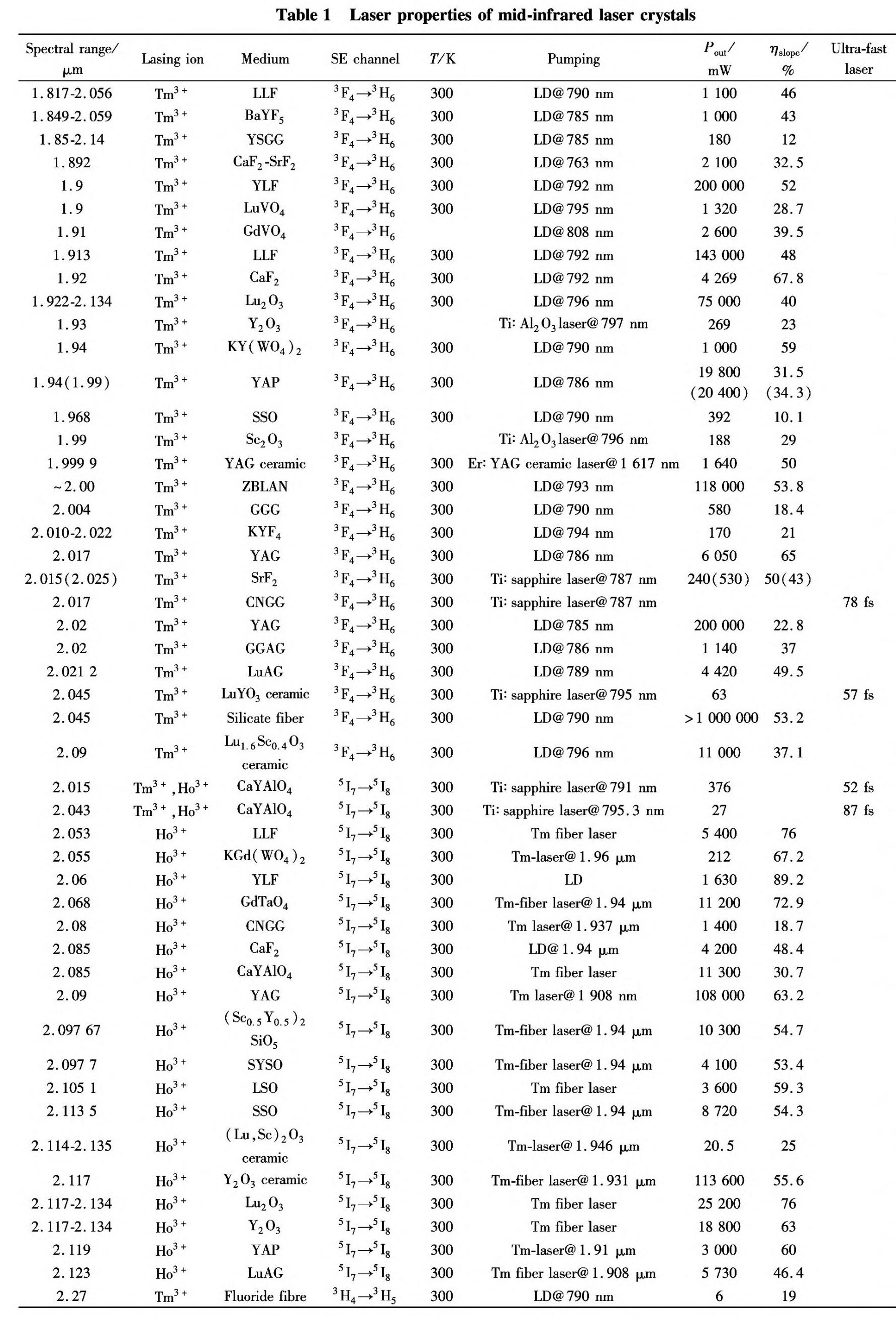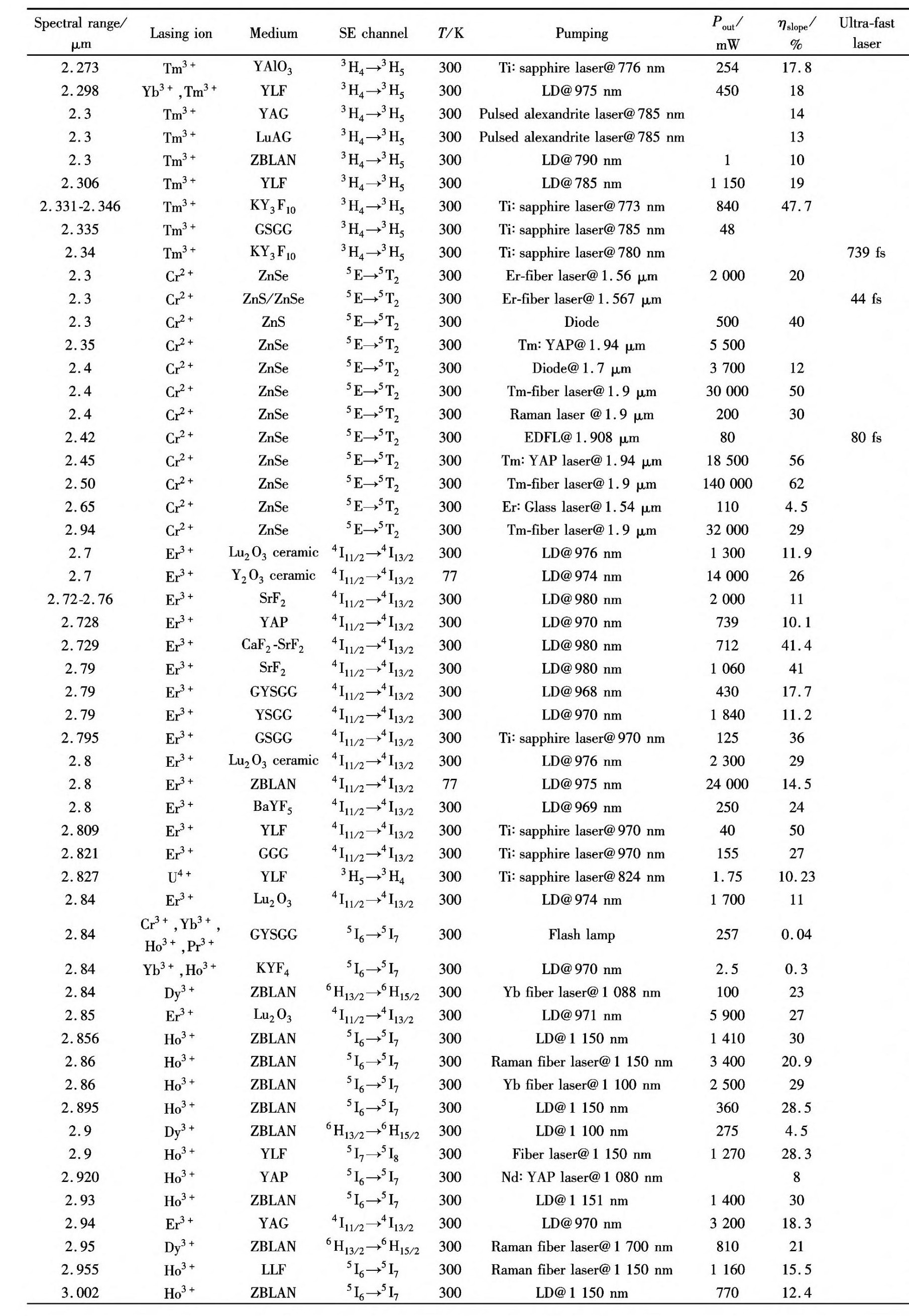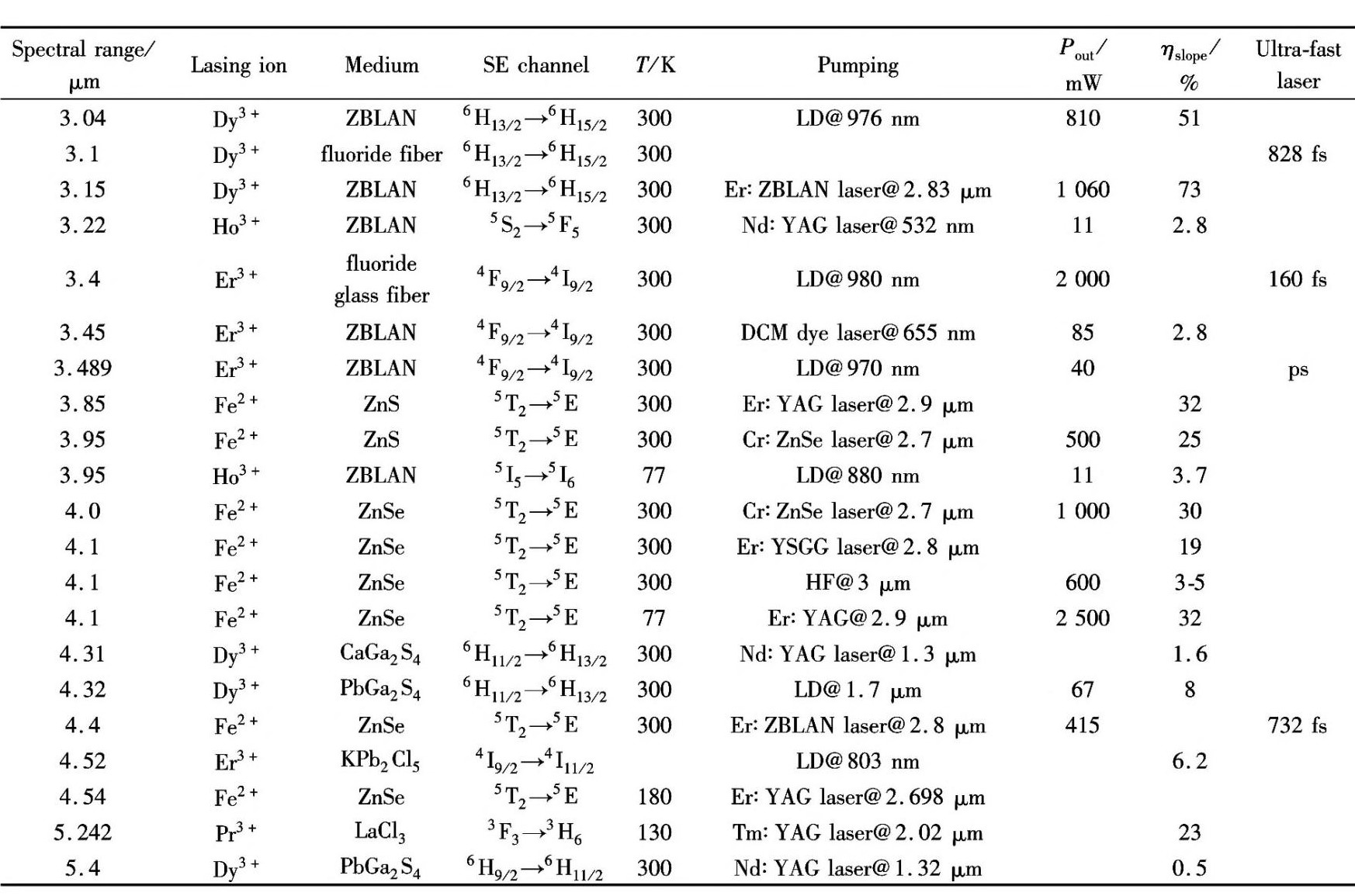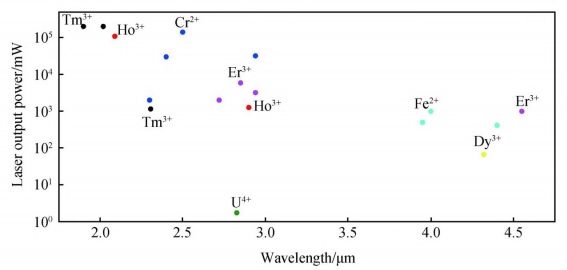1. Research status and future development trend of mid-infrared (2-5 μm) laser crystals
According to the order of laser wavelength from short to long, the main material that have achieved laser output (including some optical fibers and transparent ceramics for comparison) are listed in Table 1. Among them, the highest continuous laser output power of laser crystals corresponding to different wave bands is shown in Figure 2. The laser output power of activated ions shows an obvious attenuation trend as the wavelength expands to the mid-infrared direction. This is mainly because: the longer the wavelength, the narrower the band gap between the upper and lower energy levels of the laser, and the stronger the non-radiative transition loss. The non-radiative transition rate of laser materials can be calculated by formula (2):
In the formula, WNR represents the non-radiative transition rate, βel and α represents the constant in the matrix where the dopant ions are located, ΔE is the band gap between the upper energy level and the lower energy level, and ħω represents the matrix phonon energy. WNR mainly depends on ΔE and ħω.
Post time: Apr-04-2023





